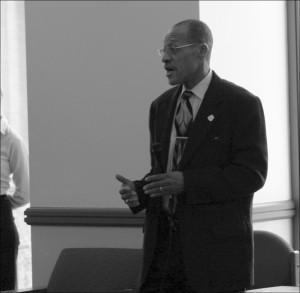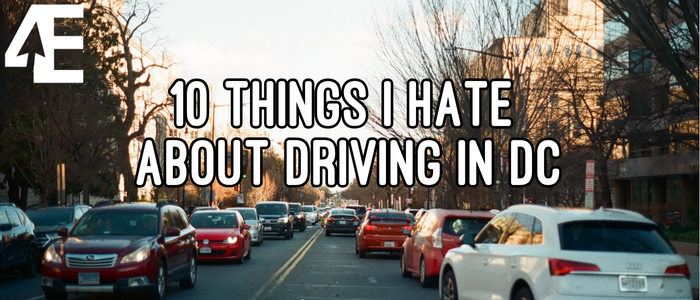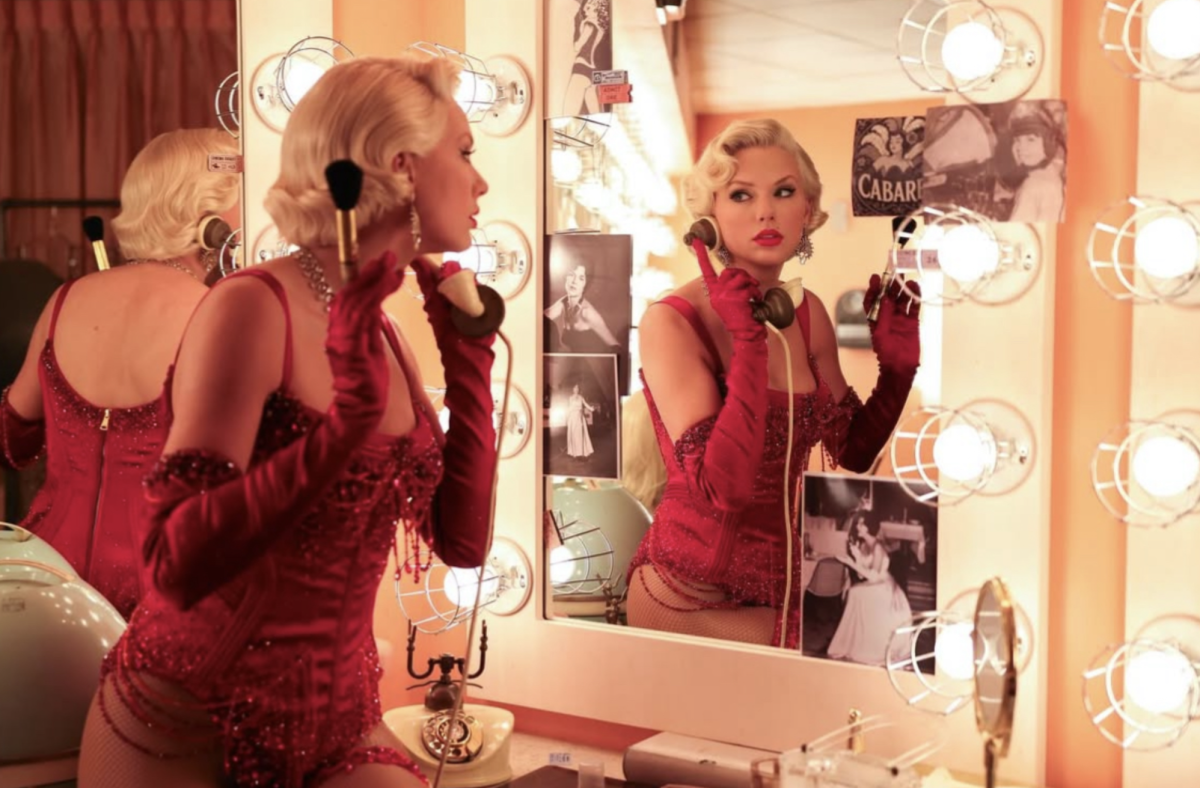
Image Contributor
Department of Public Safety Director Darryl Harrison will resign on May 31 after nine years in DPS.
After serving nine years as director of the Department of Public Safety, Darryl Harrison announced that he will retire from his post on May 31.
Harrison said he had been anticipating his retirement for a while.
“It’s something I’ve been thinking about for quite some time,” Harrison said. “I’ve accomplished everything I really wanted to do, and I’m going to enjoy spending time with my family and relocating.”
Harrison came to Georgetown as DPS director in 1999 after working as a security consultant for the 1998 World Cup in France.
Harrison said his most important contributions have been his push to integrate technology into campus security and to establish a more professional campus police force.
“When I came to Georgetown, we did not have one camera or [closed-circuit television],” Harrison said. “We have over 200 now.”
Recently, DPS has consolidated its security systems into a communications center located in Village C West, where DPS monitors the CCTV cameras, alarms and other security systems. The center also incorporates a new security camera technology, called “intelligent video,” that uses sensors to determine suspicious movement in specific areas of the university and displays real-time video of the movements on a screen for DPS officers to assess.
DPS began using security cameras in 2000, when it installed cameras on Village C East and West, White-Gravenor, Harbin patio, Loyola Hall and LXR. DPS most recently installed cameras summer 2007 in various locations around campus including Lauinger Steps, although Vice President for University Safety Rocco DelMonaco called the placing of these cameras “haphazard” in a HOYA article last year.
Under Harrison, DPS officers received a $2.50 per hour pay raise under the terms of a contract signed last year, while other negotiations over the summer resulted in agreements for better training and equipment.
“We’re at the epicenter right here in D.C. and Georgetown,” Harrison said. “Colleges are no longer the safe havens they once were. . If something does occur, we must be prepared for it, we must have the most professional officers and they must be trained.”
Harrison said DPS has worked hard to negotiate with the campus leadership, reform campus security and meet international college law enforcement standards, especially in the wake of the Sept. 11, 2001 attacks, the Virginia Tech shooting and the recent shooting at Northern Illinois University.
One DPS officer, who was granted anonymity because DPS officers are not allowed to speak to the media, complimented Harrison’s work as a boss and director.
“I think he was an advocate for anything to benefit us,” the officer said. “The [officers] like him.”
Under Harrison, DPS received accreditation from the International Association of Campus Law Enforcement Administrators, the International Association of Chiefs of Police and the Commission for Accreditation for Law Enforcement Agencies.
But a number of high-profile crimes, including several large-scale fights and assaults last year, occurred during Harrison’s tenure, leading to widespread criticism of the department. During the last academic year, three DPS officers were hospitalized in two separate altercations on campus, and many questioned campus safety when a series of fights and assaults involving individuals from outside the university occurred. In early 2006, DPS was criticized for its investigation into the shooting of a student, which was said to have harmed the likelihood of detaining suspects.
In 2004, the university began trying to implement an emergency call box system but abandoned the project mid-2006 after persistent technical problems and frustrations with the call box company. The project was only completed last summer, according to an interview with DelMonaco in August.
Harrison said a new DPS director will have a number of issues to work toward improving.
“He should have a continuing commitment to improving DPS – to improving standards, salary and a professionalized police department,” he said.
In an e-mail sent through university spokesperson Julie Bataille, DelMonaco said he is conducting a national search for Harrison’s replacement and will oversee the transition process.
“He has worked tirelessly to keep our campus safe, enhance our capabilities and respond to emergencies when they occur on campus,” DelMonaco said. “I have begun the process of recruiting his successor, seeking input from the Student Safety Advisory Board, faculty and staff and will personally oversee the recruitment as well as transition process in order to maintain a consistent approach to our campus safety operations.”
DelMonaco said he is looking for a director, preferably with law enforcement experience at a college or university, for the next academic year. The position opening will be posted on the university safety Web site.
Harrison said he will also be involved in the search.
Harrison began his career in 1970 working for the Metropolitan Police Department to avoid the draft during the Vietnam War.
“I had a brother in Vietnam and was about to enlist, but he indicated to me that that was something I shouldn’t do,” Harrison said. “Since people in the college or public service weren’t drafted, I joined . MPD.”
Eventually, Harrison rose to position of MPD captain-commander of the Special Events Branch of the Special Operations Division. In that position, he handled the release of Nelson Mandela in 1990, the Adams Morgan riot and visit by Queen Elizabeth II in 1991 and the 1994 FIFA World Cup.
After the World Cup, Harrison left MPD to work as a security consultant in Saudi Arabia. Harrison thanked the students for his time at Georgetown and encouraged them to continue criticizing DPS.
“I thank students for this opportunity. I took [the] responsibility seriously because I have two daughters in school, and I worry the death about them,” Harrison said. “Students need to continue criticizing us. They need to be continually involved in their own safety.”
As for post-Georgetown plans, Harrison has a few in mind.
“I plan to do very well. A little bit of consulting. I will be doing some fishing and preparing myself for the final table at the World Series of Poker in Vegas,” he said.
Editor’s Note: The original headline, “DPS Director to Turn in Badge This May,” was changed due to its connotation that Harrison is being forced to leave.
Updated: 1:12 a.m., Feb. 22, 2008
“






